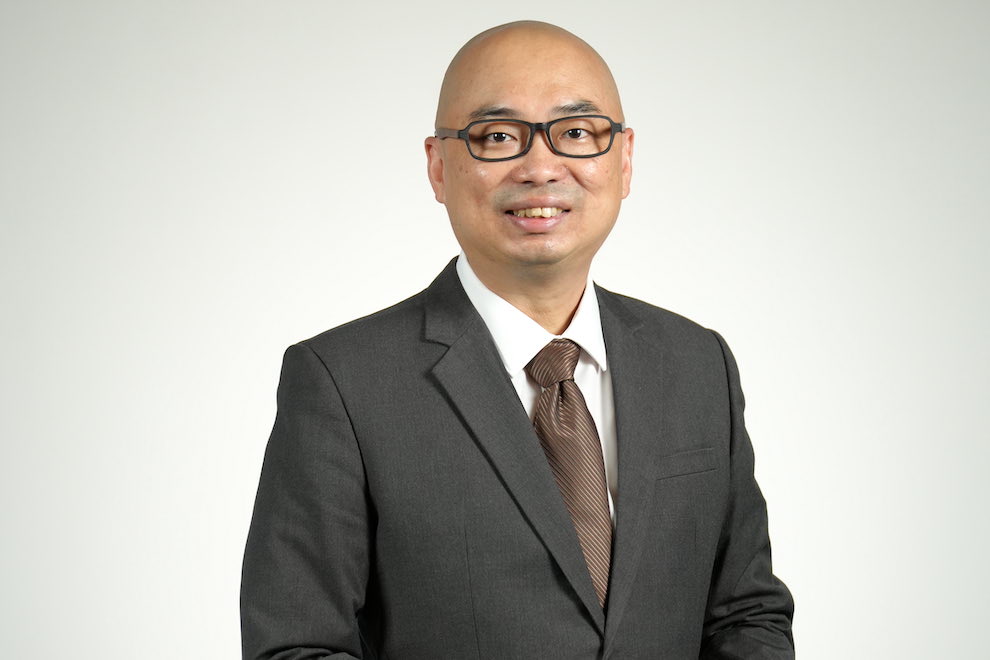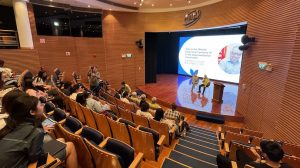Recently appointed to a second stint at IFTM, Prof. Chin-Ee Ong talks about his work over the years, including his latest research focus: ‘plasmatic thinking’ and tourism. The Singaporean scholar also explains why he chose to return to the Institute
Much has changed at IFTM since Prof. Chin-Ee Ong last lectured at the Institute in 2012. The Taipa Campus has been established, several postgraduate degrees are being offered, and the student body has grown. Nevertheless, the Singaporean academic still considers IFTM ‘home’.
He returned to the Institute in September as Professor of Cultural and Tourism Management. Prof. Ong says in his years away, he not only gained additional academic experience, but also improved his research skills. He now plans to put all that at IFTM’s service.
His debut on the Mong-Há Campus was in 2006 to teach undergraduate courses for the Heritage Management Programme, now the Cultural and Heritage Management Programme. Prof. Ong remembers his initial spell at the Institute as a wonderful opportunity to learn. It was about “growing up to be a better person, and not just in terms of career advancement as an academic,” he says.
From IFTM, he moved to Wageningen University, in the Netherlands, where he lectured for more than 3 years, and had the chance to collaborate with world-renowned scholars in the fields of cultural geography and tourism. From 2015 to 2019, he taught human geography at the National University of Singapore. He then became an associate professor of Tourism Management at Sun Yat-sen University in Guangdong province, Mainland China, before returning to IFTM.
The Institute provides “a full challenge”, enabling him to pursue various projects, not only about the Guangdong-Hong Kong-Macao Greater Bay Area, but also China as whole, as well as local Macao studies, says Prof. Ong, explaining why he chose to return to IFTM.
Cultural geography is his speciality. He obtained his PhD in Tourism Management from the University of Waikato in New Zealand. Instead of looking at tourism from just a marketing or business-related perspective, Prof. Ong’s focus is more linked to the social sciences. “It is a mix of tourism studies and cultural studies,” he says.
The scholar argues that tourism and culture go hand in hand. It is a principle he aims to impart to his undergraduate students, using regional examples in addition to local case studies.
“I would like students to show me things that they find interesting” in relation to Macao, Prof. Ong says. “I’ll also show them some locations that are worth looking into, like the shipyards in Lai Chi Vun.” After that, “we can converse,” to develop a relationship of mutual educational benefit, says the academic.
He’s a prolific researcher. One of his latest efforts is titled “Plasmatic thinking and tourism: Plasmatic modernity”. The paper, published in September, focuses on tourism in Macao.
‘Plasmatic thinking’ is a new conceptual framework proposed by Prof. Ong. According to him, it “challenges the static and stable view of our material and social worlds.” Prof. Ong says this approach “stresses the need to illuminate the ‘charges’ that initiate and hold social and material situations together.”
The scholar leads a busy academic life, including serving as editor-in-chief for the scholarly journal Tourist Studies. He is also a coordinator for the Heritage Tourism and Education Group at the Association of Leisure and Tourism Education (ATLAS).
Additionally, Prof. Ong is the Reviews Editor for social science-based academic journal Hospitality and Society. He is also on the editorial board of various tourism-related journals.
The scholar was an editor for the book “Theming Asia: Culture, Nature and Heritage in a Transforming Environment”, published by Routledge in 2018. It examines theming, theme parks and themed spaces in the contemporary Asian tourism market, from theoretical, thematic, and empirical standpoints. It draws on case studies from Mainland China, the Hong Kong region, Japan, Kazakhstan, Malaysia, and Singapore.
Prof. Ong also serves as visiting professor at Xinjiang University’s School of Tourism Management, in Xinjiang Uygur Autonomous Region, Mainland China.









